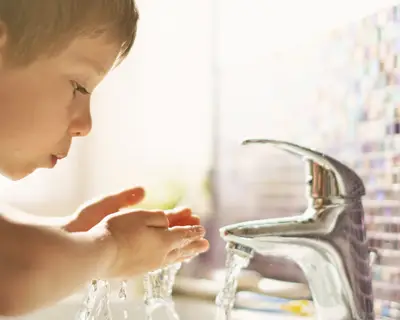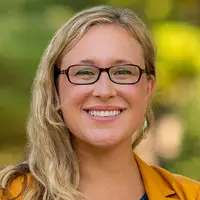RESEARCH TRIANGLE PARK, N.C. – Private wells used by households for drinking water are not routinely monitored for lead, which may put young children at risk for lead poisoning. This can damage the nervous system and cause developmental delays and lower IQ, among a variety of other health problems.
RTI International and the University of North Carolina at Chapel Hill are partnering to offer free water and child blood lead tests for up to 300 Wake County, North Carolina, households using private wells for drinking water. Additional households can enroll in the study through the end of May 2018.
“As a mother of five sons and a survivor of lead poisoning, I believe it is critical for people to know that their water is safe from lead,” said Jacqueline MacDonald Gibson, Ph.D., RTI University Scholar and associate professor of Environmental Sciences and Engineering at UNC-CH. “The goal of this study is to ensure that households using private wells have access to the highest possible quality drinking water.”
In 2017, RTI spearheaded a study evaluating lead in drinking water at childcare centers and schools, called Clean Water for Carolina Kids. This study provided free testing, along with technical support, to improve water quality at child care centers and schools within the public water supply.
“Preliminary results show at least low, but detectable levels of lead in drinking water in many of the tested buildings,” said Jennifer Hoponick Redmon, a senior environmental health scientist at RTI and co-project director of Clean Water for Carolina Kids. “As many children spend much of the week in school or childcare, the next question naturally is, what is the water quality for children once they get back home and can we improve it?”
Households that receive water from either a public water supply or private well are not required to, and thus may not, test for lead. However, public water utilities do conduct testing at the drinking water treatment plant and throughout the water distribution system, and maintenance actions at the treatment plant may limit corrosion of lead in piping on the way to the homeowner taps. A recent study led by UNC found private wells in Wake County are more likely to contain higher levels of lead compared to households on a public water supply.
To evaluate private wells and support homeowners in any needed water quality improvements, RTI and UNC researchers will conduct onsite visits and train homeowners on how to collect water samples. A UNC nurse will also collect a blood sample from one child age seven or younger at each household. The water and blood samples will be sent to RTI's Analytical Sciences Laboratory and analyzed for lead using U.S. Environmental Protection Agency methods.
“RTI uses advanced instrumentation to measure many hazardous substances, including lead at 0.1 part per billion, 30 times lower than most North Carolina city and county water treatment utilities,” said Keith Levine, Ph.D., director of RTI’s Analytical Sciences Laboratory and co-project director. “Our testing facility provides organizations with the ability to proactively identify lower levels of lead to keep water safe for children and the general public.”
Test results will be shared with each household, along with any recommended actions, such as practicing clean water habits (e.g., using cold water for drinking or cooking, and flushing the tap first), installing drinking water filters, and consulting their pediatrician.
“Through the Clean Water for Private Wells study, we hope to demonstrate the importance of routine lead monitoring and maintenance for private wells,” MacDonald Gibson said. “We also want to support parents and let them know if lead in drinking water is detected, it can be addressed with simple, affordable solutions to keep family members safe.”
To enroll in this study, please call the Clean Water for Private Wells study hotline at 919-843-5786 or email cleanwater@rti.org. To be eligible, you must obtain your drinking water from a private well and have a child age seven or younger. Participant results are private and participants will receive a $75 gift card.

- RTI International and the University of North Carolina at Chapel Hill are partnering to offer free water and child blood lead tests for up to 300 Wake County households using private wells for drinking water
- Private wells used by households for drinking water are not routinely monitored for lead, which may put young children at risk for lead poisoning
- To enroll in this study, please call the Clean Water for Private Wells study hotline at 919-843-5786 or email cleanwater@rti.org
RTI International Media Relations:
As an independent, scientific research institute with a mission to improve the human condition, RTI International is engaged by clients and partners to conduct evidence-based research and project implementation. We share our work in line with journalistic and scientific standards and maintain a record in RTI’s Newsroom.
RTI International is an independent scientific research institute dedicated to improving the human condition. Our vision is to address the world's most critical problems with technical and science-based solutions in pursuit of a better future. Clients rely on us to answer questions that demand an objective and multidisciplinary approach—one that integrates expertise across social, statistical, data, and laboratory sciences, engineering, and other technical disciplines to solve the world’s most challenging problems.
For more information, visit www.rti.org.


